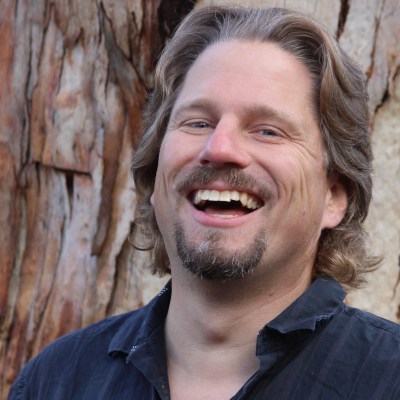Why I pass on Screenplays: A reader's perspective

Since 2002, Tennyson Stead has been working in film development more or less non-stop. In that time, he's read thousands of screenplays...and in that time, he's probably written coverage that recommended a script around twenty times.
How can that be? Are there truly no good writers in Hollywood, or is there something else going on? Why is threading the needle of film development so challenging?
In this interactive discussion, Tennyson goes over some of the reasons he passes on scripts he reads, and answers member questions about all things coverage.

Today, Stead's efforts include serving the film industry as a screenwriter, script doctor and ghostwriter, as well as writing and producing a very ambitious space adventure gaming and transmedia project called Jump Rangers. Recent, credited screenwriting work includes Emagine Content's tentpole sci-fi action film Atlas Uprising, and director Michael Wohl's vicious Hollywood satire Making the GAMP.

Ben Cahan is the CEO here at Talentville.com, working to build a community that allows aspiring screenwriters to network, learn and get valuable feedback for their screenplays before spending a king's ransom on competitions and expensive development services.
In addition, Ben was the creator & co-founder of Final Draft, the worldwide leader in screenwriting software for since the mid-1990s.
with Tennyson Stead
In twenty years providing script coverage, I have probably written coverage that recommended a script around twenty times.
How can this be? Are there truly no good writers in Hollywood, or is there something else going on? Why is threading the needle of film development so challenging?
In this interactive Q&A session, I will be discussing a few of the following reasons:
- Most screenwriters come from literature or journalism these days, and there are some big differences between writing for a reader and writing for actors.
- What we're talking about is the difference between active and passive writing, which in dramaturgical terms is the difference between action and reaction.
- Most film executives and most managers come from the business world, or just from business school, and have no idea what these differences are.
- Even if they don't know how to articulate it, they can feel that something's missing. Inevitably, they interpret that feeling as a "tonal" problem. It's not a tonal problem. It's structural.
- If we work from the action, we support the actor's performance instead of asking them to sell our story.
-- Ramesh N.
Great speaker. Generous with his knowledge. Really annoyed and learned from it
-- Brian M.
It was wonderful to hear Tennyson speak and be able to relate what he said to the screenplays I am developing with the writers as the producer of them.
-- Rosemary M.
Excellent class.
-- Former R.
I was looking for real, tangible insights about what readers look for and why they discard certain scripts. What I gleaned from this webinar was the subjectivity of readers and the variety when it comes to expertise. It's a crapshoot. Networking is one of the essential elements. Sadly, many creatives' strong suit is not networking (formerly "schmoozing") or business.
-- Lindsey M.




Great presentation - I look forward to the documentation to really understand his points. Although what he said wasn't revolutionary - it was explained differently today and I really liked that.
-- Shay E.